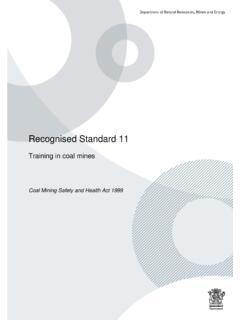Transcription of Covid-19 Impact on Financial Services Risk and Compliance
1 BEING RESILIENTCOVID-19 Impact ON Financial Services RISK AND COMPLIANCEBEING RESILIENT. THAT S LIVE is an unprecedented calamity on human beings, society and the world in general. This pandemic has already taken several hundred thousand lives and has impacted human health across the pandemic has also given a massive jolt to the global economy. Consumption is declining. Industrial production is nosediving. GDPs of all major nations are falling. Unemployment is increasing. Interest rates are falling. Development projects are getting deferred.
2 Workforce productivity is dwindling. Stock markets are collapsing. Supply chains are getting shattered. Overall the global economy is staring at a big recession. This is the biggest challenge we are facing after the great depression of a key sector of the economy, banking and Financial Services industry has been affected tremendously. Organizations are struggling to keep vital Services up-and-running. Revenues are contracting. Cost reduction pressure is increasing. New forms of Financial crimes such as fraud and cyber security are erupting.
3 Liquidity risk is growing. Workforce productivity has reduced due to remote working. At the same time, new workload is getting added to manage relief package activities. On top of it, day by day regulators are providing new guidelines, and revised Compliance obligations are being enforced. These business challenges are having profound Impact on technology side too. This paper provides insights on the business and technology challenges faced by Financial institutions, and how the industry is coping with the pandemic and managing its risks .
4 Firms risk management actions include both the short terms measures, as well as the development of strategic roadmaps to make their systems and processes resilient to such debilitating Document 2020 Infosys LimitedExternal Document 2020 Infosys LimitedKey Regulatory Changes Relaxed the implementation dates of new regulations Extended the submission deadlines for existing regulatory reports Suspended non-critical supervisory examination activities Allowed early adoption of risk/exposure calculation methodologies this would positively Impact liquidity
5 Relaxed various buffers, and reserve ratio requirements c) may utilize alternative approaches (that are similar to the cumulative difference between provisions under ECL accounting model and that under prior incurred loss accounting model) d) for a 2 year period (2020 2021), may permit banks to add-back up till 100% of the transitional adjustment amount to CET1 Global Changes Governors & Heads of Supervision bodies have announced the delay of Basel III Implementation to enhance the operational capacity of supervisors and banks.
6 Following are the changes in implementation timeline of outstanding Basel III standards:Given the disruptions that Covid-19 has caused, it s not a surprise that ensuring economic and operational resilience of the global Financial system has become the topmost concern of regulatory bodies across the globe today. For the past few months, governments and regulatory agencies have been pursuing a range of measures to alleviate the pandemic s Impact on world s Financial stability. Crucially, these measures have focused on ensuring continued lending by banks Basel Committee on Banking Supervision (BCBS) along with the International Organization of Securities Commissions (IOSCO)
7 Have decided to postpone the implementation of final two phases of margin requirements for the non-centrally cleared derivatives by 1 year BCBS has opted to postpone the implementation of revised G-SIB framework by 1 year BCBS has amended regulatory capital and on facilitating the banks ability to absorb losses in an orderly manner. Understandably, the regulatory changes following the Covid-19 fallout are still dynamic in nature depending upon how the pandemic unfolds in the coming months, more changes are in are focused on implementing adequate measures to get Financial institutions back on the path of recovery.
8 For example, they have:treatment of expected-credit-losses (ECLs). As per BCBS amendments and jurisdictions a) may apply current transitional arrangements, even in cases where these were not originally implemented (when banks had initially implemented the ECL model) b) may allow banks to change from the static approach to dynamic approach for determining transitional adjustment amount StandardOriginal date of implementationRevised date of implementation Revised leverage-ratio framework & G-SIB buffer Revised standardized approach for credit risk Revised Internal Ratings Based (IRB)
9 Approach for credit risk Revised operational risk framework Revised CVA framework Revised framework for the market risk Revised Pillar 3 disclosure framework1st Jan 20221st Jan 2023 Output floor1st Jan 2022; transitional arrangements to 1st Jan 20271st Jan 2023; transitional arrangements to 1st Jan 2028 External Document 2020 Infosys LimitedExternal Document 2020 Infosys LimitedCECL s Impact on regulatory capital Intraday credit: FRB has decided to defer by six months the implementation of changes to its Payment System Risk (PSR) Policy related to the provisioning of intraday credit to branches and the foreign banking organizations (FBOs) agencies Lending.
10 FRB has made a technical alteration which allows banks to continue-lending to creditworthy households & businesses Regulatory reporting: US SEC has provided publicly traded firms with additional 45 days to file specific disclosuresFrance, Greece, Italy and Spain have all issued temporary short selling prohibitions in the wake of extreme volatility in trading Regulatory reporting: EBA has asked competent authorities for one-month flexibility in reporting dates of FIs Pillar 3 disclosures for the reports with dates of remittance between March & May 2020 2) limit certain insolvency & bankruptcy proceedings Capital & credit risk: The federal bank regulators have.











